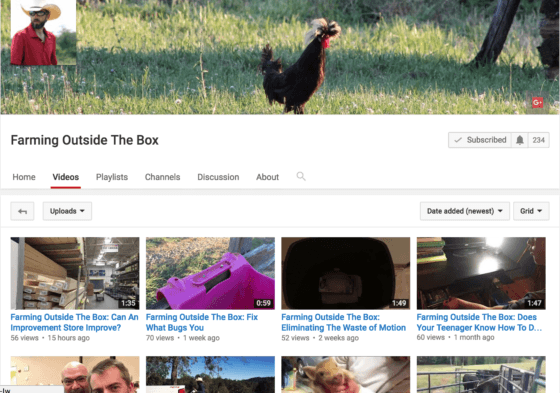
I don't know anything about farming. The only time I spend on “farms” is visits to wineries that grow grapes, as I've blogged about before.
I was contacted recently by Jesse Frost, who was working on this article that's now been published online:
What Can Small Farms Learn From a Car Company?
I tried to give him some perspectives about Lean and the Toyota Production System in general. We also chatted about how these principles can apply in healthcare, even though hospitals aren't factories and patients aren't cars (as I've written about before).
In the article, Jesse profiles Ben Hartman and Clay Bottom Farms in Indiana.
Just as Dr. John Toussaint and ThedaCare learned from manufacturers like Ariens, the farm learned from a local manufacturing company, The Aluminum Trailer Company.
“What convinced Hartman was Brenneman's assurance that the lean approach was not just a style of manufacturing. Instead, he explained, lean was a way to grow more profitable with almost no added investment. “It's just improving your process,” Hartman recalls Brenneman telling him. “And that idea appealed to us.””
Hartman has published a book titled The Lean Farm: How to Minimize Waste, Increase Efficiency, and Maximize Value and Profits with Less Work.
You can see a video about the book:
It makes sense that Lean principles can apply to farming. It's not about turning the farm into a factory. You can't level load when grapes ripen throughout the year, but there have got to be tons of process improvement opportunities in a farm, just like any workplace.
As I shared examples with Jesse, he wrote and quoted me:
“Lean thinking has also found its way into libraries, law firms, local governments, the health care industry, food hubs, grocery stores, software companies, and more.
“It's getting hard to find an industry where people aren't using lean methodologies,” says lean consultant and author Mark Graban.”
And there's a good reminder in there from Toyota's Jamie Bonini about the application of lead-time reduction:
“[Bonini] sees farming as like a potentially good application for TPS.
Bonini offers the example of reducing lead time, which is a large focus of TPS. In farming, the lead time would be the amount of time between harvest and customer. Where you can lessen that time, says Bonini, you have the benefit of not only fresher produce, but less wasted food in the process.”
There are many great lessons in the article, including the benefits of directly observing work, an outside set of “fresh eyes” asking questions, and working together to improve how work is done.
I had first learned of Lean farming through videos published by another farmer, Thomas Riner, on his YouTube channel.

It's great to see Lean principles spreading, even out on the farm.
What do you think? Please scroll down (or click) to post a comment. Or please share the post with your thoughts on LinkedIn – and follow me or connect with me there.
Did you like this post? Make sure you don't miss a post or podcast — Subscribe to get notified about posts via email daily or weekly.
Check out my latest book, The Mistakes That Make Us: Cultivating a Culture of Learning and Innovation:









